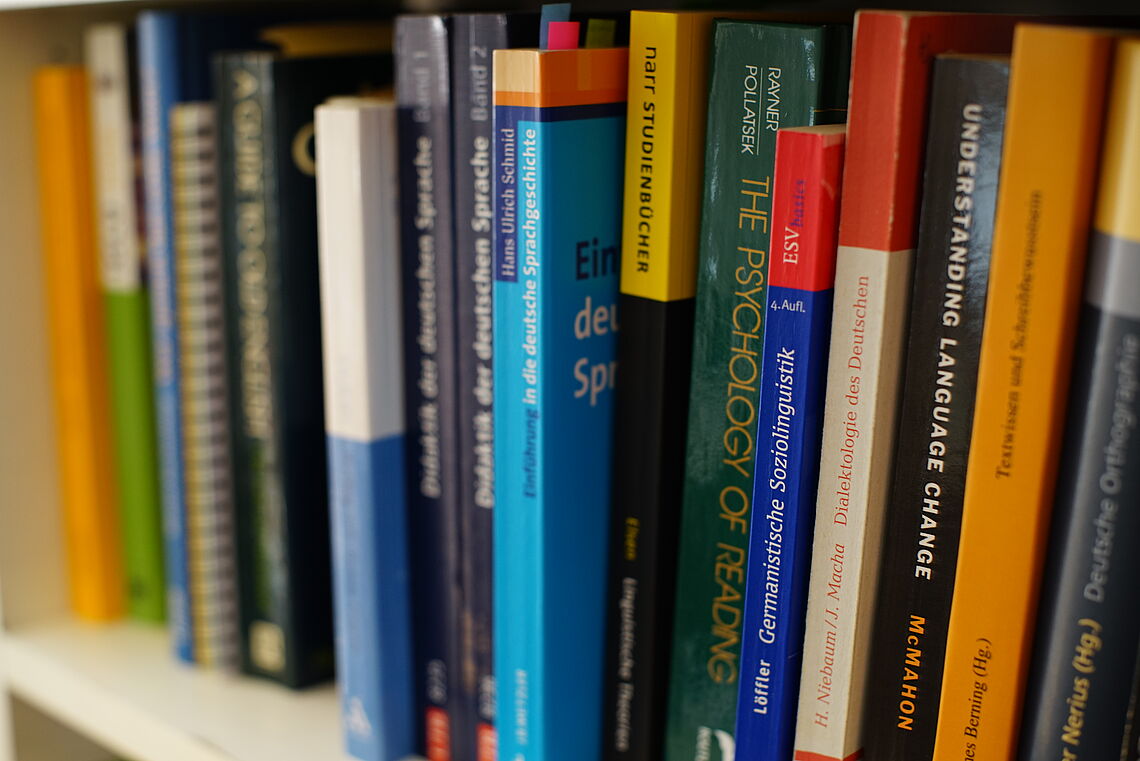Language studies (linguistics)
Language studies (linguistics)
Language studies (linguistics) conceive of human language as the basis of thinking and cognition, and indeed as a fundamental prerequisite for human existence and culture. Language itself – present and past – is consequently the subject of language studies. This includes all forms of spoken language, all forms of written language and also sign languages.
Language studies are concerned with investigating the building blocks of language and the rules according to which these are shaped into meaningful constructs; the way meaning is conveyed as language; the different practices, categories and media of communication; the historical emergence of language, taking account of cultural, social and medial factors; the internal differentiation of language in dialects and other varieties; the interaction of language and social realities; and the cognitive bases of human language ability
(language acquisition, language production, language reception).
Language studies utilize a wide variety of different methods, depending on the subject area and the precise question being asked. These include traditional philological methods of textual and discourse analysis – an area which operates in particularly close proximity to the interface with literature studies, the material basis of which covers not only literary texts but all forms of text and discourse. Furthermore, modern linguistics draws on the empirical methods used in the social sciences, including qualitative and quantitative surveys and evaluations as well as computer-based methods of documentation and analysis
Literature studies
Literature studies are concerned with the literature of the respective language. They cover forms of literary text (drama, poetry, fiction) that may be understood as cultural products of an aesthetic exploration of key questions about human existence and the social conditionality of human action.
The point of departure of literature studies is always the literary text, which is analysed in relation to different concepts of significance and examined in terms of its form, message, and cultural and social situatedness.
Theoretical literary positions permit a considered, methodological approach to textual analysis. They can adopt differing perspectives according to the research tradition and exact formulation of the questions: the textual perspective, which looks at the aesthetic, stylistic, rhetorical, genre-specific or intertextual qualities of the literary text; the author's perspective, which looks at the relationship between author and work; the reader's perspective, which looks at individual and collective literary reading experiences and constructions of meaning; and the contextual perspective, which looks at the historical situatedness of the text, its production and reception, as well as its mediality.
Literary studies relating to European languages usually differentiate between pre-modern and modern literature, with the dividing line set somewhere between the 15th and 17th centuries. The study of pre-modern literature is often known as medieval studies, in order to point up the interface with historical language studies.
Studying texts from earlier periods requires "translation" in two respects: on the one hand it calls for knowledge of older forms of the corresponding language culture (e.g. Old English, Middle English or Old High German, Middle High German) which are taught as a separate part of the course. On the other hand, exploring older literary texts depends more heavily on an in-depth examination of the cultural, social and media-historical contexts of the periods in which they originate. These aspects need to be considered as a fundamental element of
literary production when investigating its literary-aesthetic outputs, in order to make the unfamiliarity of the older texts apparent and intelligible.
Language and literature studies are usually studied in relation to one specific language or group of languages, which may be European or non-European: e.g. German (German studies or German philology), English
(English studies or English philology), Nordic languages (Nordic philology or Nordic studies), Slavonic languages (Slavonic studies, Slavonic languages and literature). Romance language and literature studies are usually studied as part of Romance studies (French, Italian, Spanish, Portuguese, Rhaeto-Romanic) or in relation to a specific language (French studies, Spanish studies etc.), depending on the university. The study of non-European languages and literature, such as sinology (Chinese), Japanese studies (Japanese), Korean studies (Korean) and Arabic, usually also covers general social and cultural aspects from current or historical perspectives.
For the greek and latin language and literature studies see the following link (www.ch-antiquitas.ch).
However, in language and literature studies, research often focuses on cross-lingual ("interphilological") aspects. Language and literature studies can therefore often be studied cross-lingually within the framework of general language or general literature studies or similar courses designed to be "interphilological".
